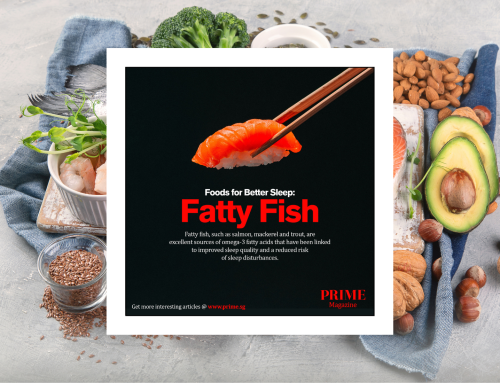One of the frustrating things about weight control is the question of weight regain – putting back what weight you worked hard to lose. PRIME interviews Associate Goh Lee Gan, Senior Consultant from the Division of Family Medicine, Department of Medicine, National University Health Systems.
Higher Protein Diets
Q: Hi Prof, there are conversations that higher protein diets can successfully prevent weight regain. Can you elaborate on this?
A: Yes. Over the past 20 years, higher protein diets have been touted as successful strategy to prevent or treat obesity through improvement in body weight management.
Mechanisms of Action
Q: Interesting. How does a higher protein diet work?
A: Well, there are several mechanisms. First, protein creates satiety – that is, one feels full and stops eating too much. This has been dubbed satiety weight control. Second, there is a feeling of satisfaction – a hungry man (or woman) has been touted as a n angry man (or woman) – a higher protein diet creates that satisfaction.
Two other things follow once you have taken a higher protein diet. First, one does not go around chasing for more food. Carbohydrates do not create this satiety so we are more likely to got chasing for more food – and grow fat as a consequences.
Also, the craving for food because of hunger sets up a cumulative stress called allostatic load. This is not good in the long run.
How much?
Q: How much of protein intake will create this desirable satiety?
A: Diets that contain between 1.2 and 1.6g protein/kg daily and potentially include meal specific quantities of 25 to 30g protein per meal provide satisfaction, satiety weight loss, fat mass loss, and/or preservation of lean mass. There is less weight regain compared to a diet with higher carbohydrate content.
How certain?
Q: This higher protein in the diet to create weight control and also hopefully less weight regain sounds good. Any uncertainty about the results so far?
A: Research is needed to examine whether the satiety effects of protein promote voluntary reductions in energy intake and improved body weight management over the long term. Meanwhile there is no harm trying to take a higher protein diet and also to cut back on carbohydrates. One should not go overboard however in cutting out all carbohydrate in each meal. Some balance is needed.
Protein Serving
Q: How much protein is there in one serving of food?
A: Our Health Promotion Board has a Healthy Plate fact sheet that contains the nutrients in one portion of food. Figure 1 taken from this factsheet gives the reader some idea of things.





